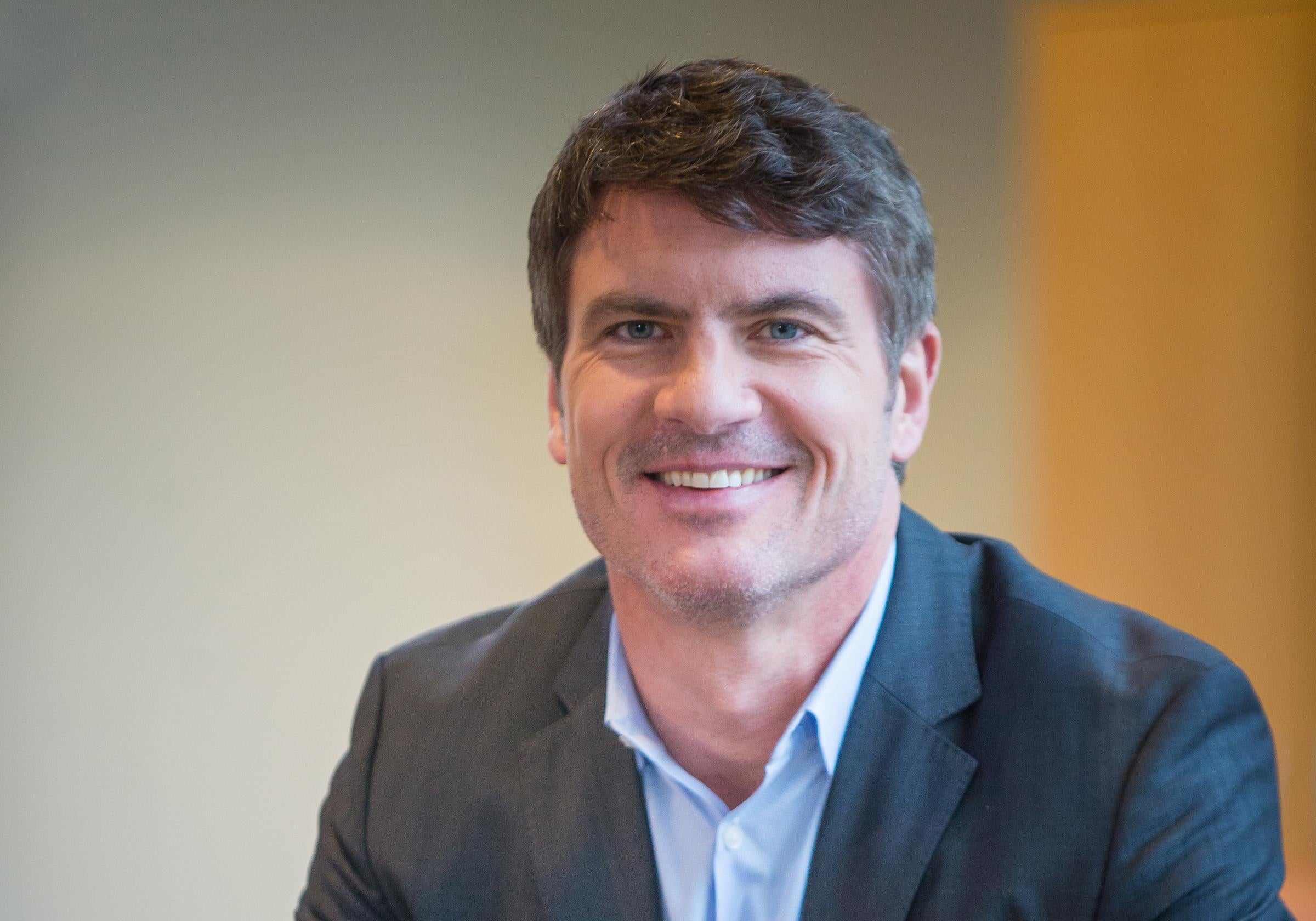A View from the Top: Matt Moynahan talks detective work and how Silicon Valley needs to change
The cybersecurity boss says the tech industry is not as focused as it should be on sorting out its culture problems

Cybersecurity may seem like a dull business, but Matt Moynahan makes it sound like detective work for the modern age.
That’s because Forcepoint, the company where he has been chief executive since 2016, looks at the human element of cybercrime, rather than focusing on the technical side.
Moynahan likens the approach to that of internet giants Netflix and Amazon: “They try to understand their user bases and serve up content specifically for them. We do the same. We understand the behaviour of users, but we do it for the purpose of protecting people.”
Forcepoint tracks the “human behaviour” of its clients, who include global companies like ExxonMobil, British Airways, Dell and Walmart. It learns how they tend to use the internet. According to Moynahan, a “rhythm” will usually emerge – certain applications will be used, normally following a set timetable, the user creating a pattern, even if they’re not aware of it. Crucially, hackers won’t be aware either. He says: “It’s very hard for hackers to learn these rhythms.”
So if someone’s ID has been compromised, which is the number one cause of cyber breaches for companies, Forcepoint can go back and look at the patterns to determine which is the real user and which is the fraudster.
“If we know how you behave, then when people steal your identity we can find it – we can see the needle jump out of the haystack,” he says, describing his job as “predictive detective work”.
“Some people ask, ‘Isn’t that very Big Brother?’ And I say, ‘That’s funny – Big Brother got a bad reputation because of [the novel] Nineteen Eighty-Four, but your big brothers and sisters can also protect you.”
It’s a proactive approach to something that often seems a very reactive business, but Moynahan has always been ready to take action where he sees fit.
He puts this partly down to his childhood in Gloucester, Massachusetts. “I’m the middle of nine kids, so I like a good dust-up,” he says. (Siblings is a theme with Moynahan – outside of work, he is active in the Big Brothers Big Sisters mentoring programme).
He studied history and economics at Williams College, where he first “picked up a book about the internet”. It sparked his interest, and he moved into the cybersecurity field very early in his career and has stayed there for 20 years, with a stint at Harvard Business School during that time.
However, he admits to growing frustrated with his chosen field a few years ago: “I was so exasperated that I was going to get out of the security game because the industry needs a paradigm shift. It was this way of thinking that prompted his move to the more human-focused Forcepoint, because it’s tackling cybersecurity in a way that nobody else is.
Since joining the company, he has made a lot of changes, but mainly to do with staff and structure, as opposed to the products. “Non-technical aspects are how I spend most of my time,” he says.
“I would say I spend 50 per cent of my time to really building the employee culture. I spend a lot of time putting in place the culture and leadership expectations, high integrity, so we can build trust with clients. You need to create a good culture.”
This is what he pinpoints as the biggest problem facing the tech world at the moment.
“If you look at the bad tech stories out there, unfortunately, it’s about culture,” he says.
“Whether it’s Twitter or Facebook or Uber – technology has uses, but it can be abused and companies need to draw a clear and hard line around what is acceptable and their role in society and live up to it.”
Some action has been taken within the industry, he says, noting that well-known figures such as Mark Zuckerberg and Jack Dorsey are “out there trying to figure it out in real time”, but for the energetic Moynahan, it’s not enough.
“I would draw a hard line on what acceptable use is – and I don’t think Silicon Valley is focused on that as much as they need to be,” he says. “They need to figure it out. That would do almost every company good.”
Moynahan mentions at several points that this job will likely be his last in cybersecurity, although he stresses this doesn’t mean the end is nigh: “There’s nothing to suggest this market is going to slow down any time soon.”
However, in around five to seven years, he sees himself moving into the advisory side of the field, with big ambitions for more action.
“Cyber is one of if not the most pressing issues that faces our world and it’s so complex,” he says.
“The recent election campaign issues show there’s work to be done. I hope to play a role in changing the way we think about this problem.”
Join our commenting forum
Join thought-provoking conversations, follow other Independent readers and see their replies
Comments
Bookmark popover
Removed from bookmarks